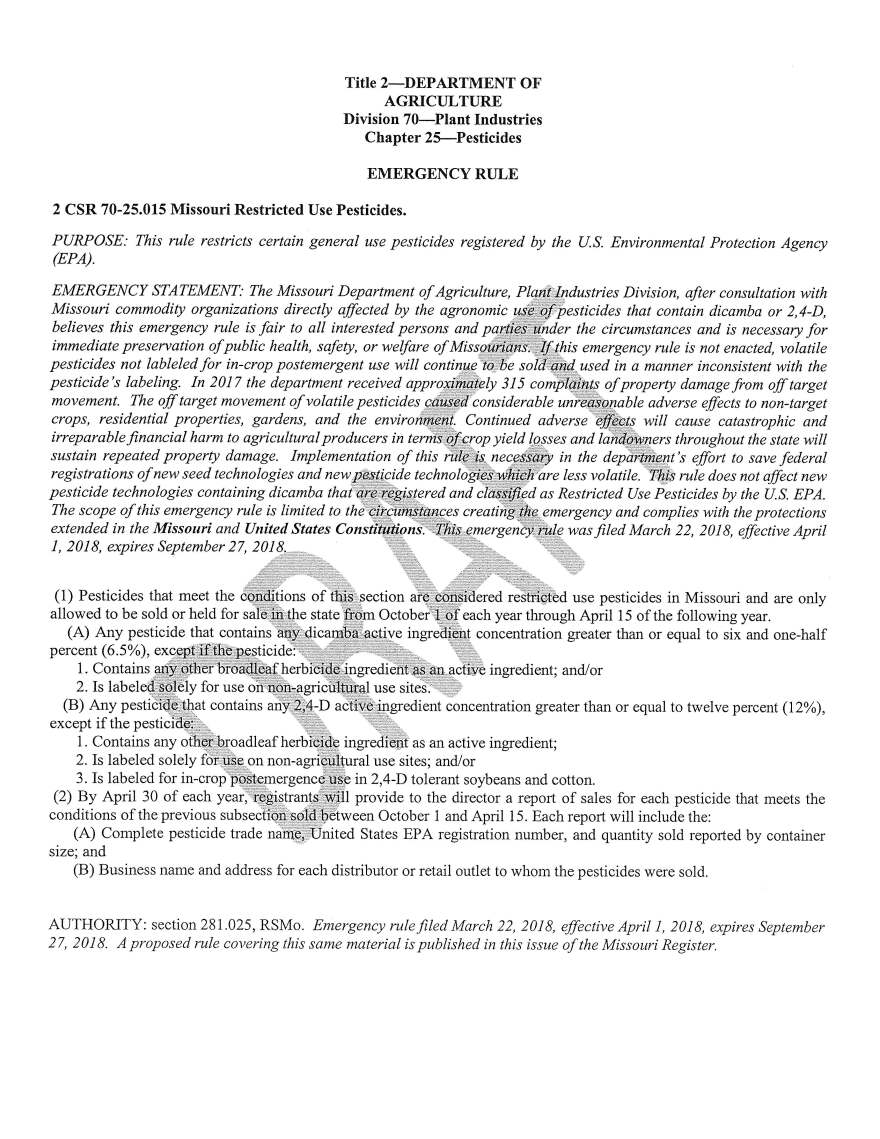The Missouri Department of Agriculture held a public hearing Wednesday to discuss a proposed emergency rule restricting the sales of two popular pesticides.
Generally, the rule would stop sales of the weed killers dicamba and 2,4-D between April 15 and October 1 in Missouri. The department’s goal is to prevent off-label pesticides from drifting onto neighboring property and damaging other crops.
In the hearing, representatives from several agricultural groups stated that 2,4-D should not be lumped in with dicamba. Dicamba allegedly damaged 325,000 acres of soybeans in the state last year.
“We’re a bit disappointed the state has decided to press forward on this rule with 2,4-D,” said Jim Gray, agriculture consultant and executive director of the Industry Task Force II on 2,4-D Research Data. “We are arguing that there is no evidence on the record of legacy 2,4-D misuse over the top of the herbicide-tolerant crops.”
Several speakers pointed out that there are workarounds for the proposed rule.
“Producers will still be able to purchase the products out of state or online, delivered to their farm or home,” said Mike Deering with the Missouri Cattlemen’s Association. “This leads us to conclude that this could have a negative impact on small businesses in our state.”
The rule also requires registrants provide a sales record by April 30 for each pesticide sold between October 1 and April 15. Stuart Feldstein, executive vice-president of agricultural chemical company Albaugh LLC, said that won’t be effective either.
“We sell to distributors. We don’t sell to farmers. So we can report our sales but that’s not going to tell the department very much about where the product is going and how it’s being used,” Feldstein told department Director Chris Chinn at the hearing. “I think more thought needs to be given in terms of what information you would like to obtain from the reporting requirement to make sure that it’s reasonably tailored.”
Industry advocates also brought up concerns that this emergency rule could set a precedent for other states dealing with pesticide drift. Last year, Missouri temporarily banned dicamba sales and use. The Department of Agriculture reports it received about 315 complaints about drift damage in 2017.
Dicamba products exempt from the proposed emergency rule include those with less than 6.5 percent of the active ingredient, products combined with other active-ingredient herbicides and products labeled for non-agricultural use. The stipulation for 2,4-D is similar but with a 12 percent concentration cutoff and an exception for 2,4-D-tolerant cotton and soybeans.
The department has received about 40 written comments on the emergency rule which could be enacted as early as April 1, 2018.







